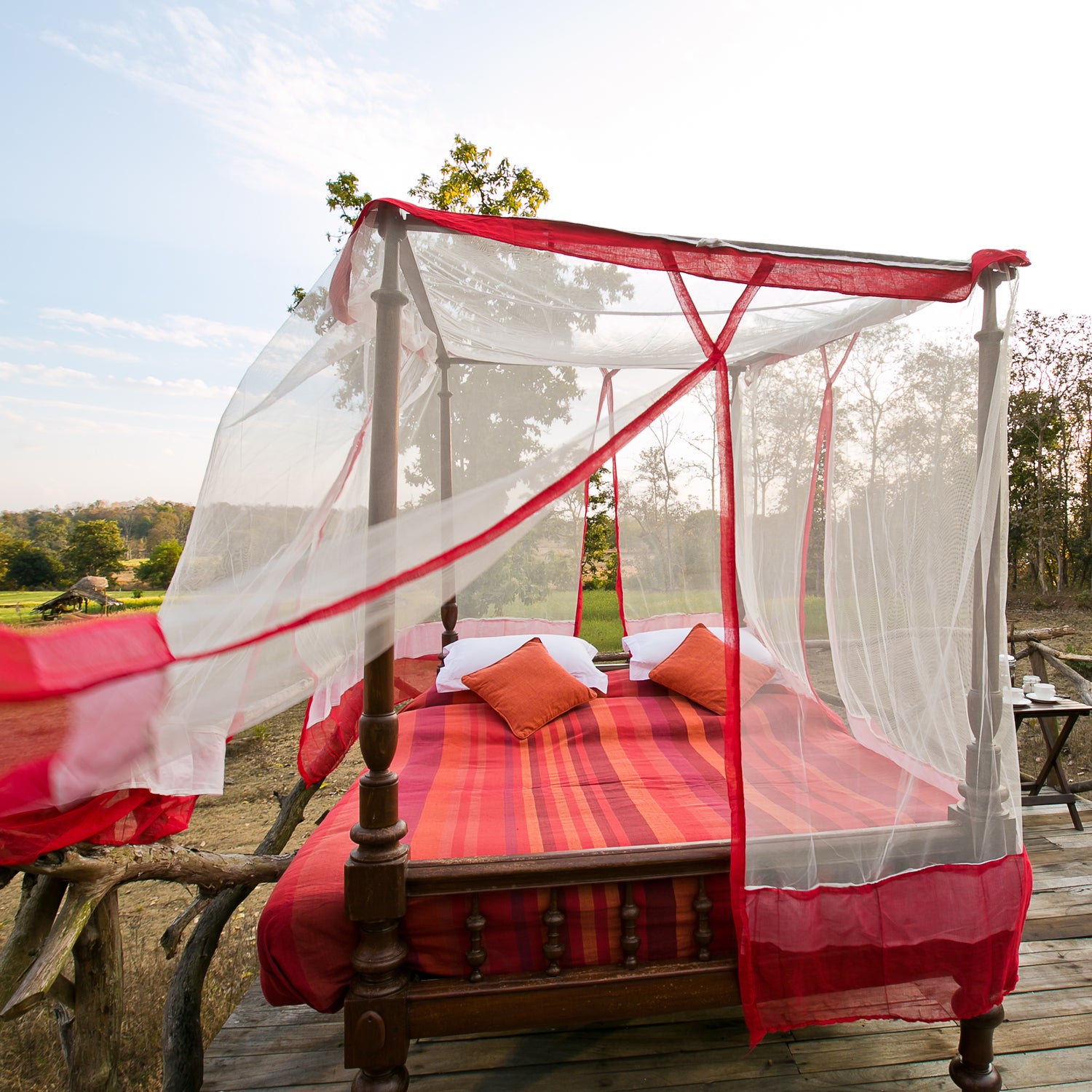Farmers in parts of central India have slept in the open on elevated platforms for decades, to guard their crops from sloth bears, chital stags, and the occasional Bengal tiger. At the new , founder Amit Sankhala turned that tradition on its head, with an outdoor four-poster bed that can be reserved by guests on clear nights to welcome nocturnal wildlife encounters. The camp’s focus on wildlife tourism has provided surrounding landowners with the incentive to protect rather than scare off the native animals.
Sankhala has conservation in his genes—he’s the grandson of , the famed naturalist who helped establish the first tiger reserves in India—and he set his three-acre camp just outside 183,000-acre ’s less traveled northern boundary. That means your chances of seeing a tiger in the wild—there are estimated to be 55 in the park—have never been better.
Centered near a sprawling banyan tree, the main camp’s ten luxe tents have wooden floors repurposed from old sailing ships and are outfitted with writing desks salvaged from the Supreme Court of India. Guests explore a different kind of wild India here: activities range from a game drive through a forest full of leopards and stags to lazing on a chaise next to the infinity pool listening to a Malabar pied hornbill. Rest assured that the day will close with a sundowner.
Trip Logistics
Access: Fly from Delhi to Nagpur; Jamtara will arrange the three-hour transfer to the camp. From $300, including safaris.
Temps: 50° F to 86° F (March)
Detour: Hop on a bike and ride the half-mile into the town of Jamtara to watch sugar cane processed into jaggery in 20-foot-wide pots.
Indulge: The laal maas, lamb curry cooked with red chiles, is especially hot here.


